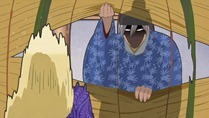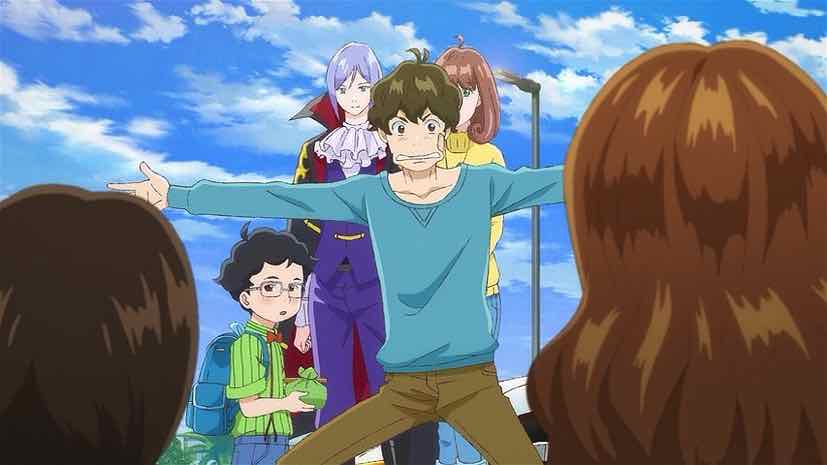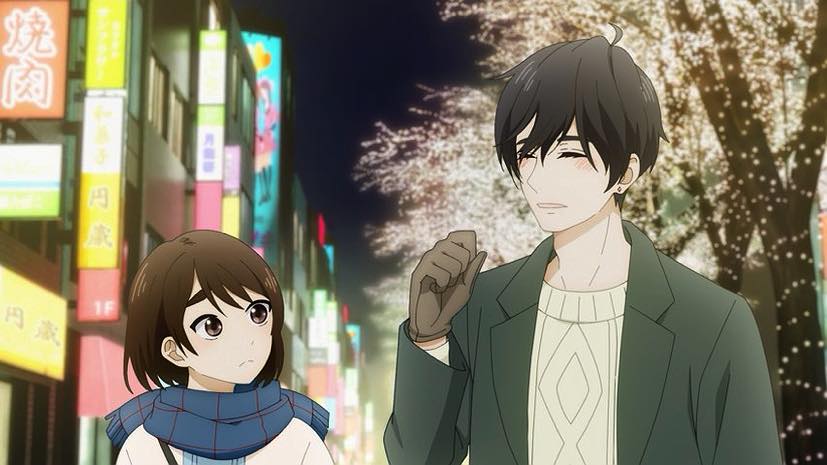![[HorribleSubs] Utakoi - 11 [720p].mkv_snapshot_02.10_[2012.09.11_12.47.28] [HorribleSubs] Utakoi - 11 [720p].mkv_snapshot_02.10_[2012.09.11_12.47.28]](https://lh4.ggpht.com/-hugIhpUrf-o/UE-moBxsk4I/AAAAAAAByNE/B1-XSU3IP_E/%25255BHorribleSubs%25255D%252520Utakoi%252520-%25252011%252520%25255B720p%25255D.mkv_snapshot_02.10_%25255B2012.09.11_12.47.28%25255D_thumb.jpg?imgmax=800) |
![[HorribleSubs] Utakoi - 11 [720p].mkv_snapshot_14.14_[2012.09.11_12.58.43] [HorribleSubs] Utakoi - 11 [720p].mkv_snapshot_14.14_[2012.09.11_12.58.43]](https://lh6.ggpht.com/-6CgpiKHjowM/UE-mpwMHN9I/AAAAAAAByNU/z4nXz9ydyR8/%25255BHorribleSubs%25255D%252520Utakoi%252520-%25252011%252520%25255B720p%25255D.mkv_snapshot_14.14_%25255B2012.09.11_12.58.43%25255D_thumb.jpg?imgmax=800) |
![[HorribleSubs] Utakoi - 11 [720p].mkv_snapshot_21.38_[2012.09.11_13.12.36] [HorribleSubs] Utakoi - 11 [720p].mkv_snapshot_21.38_[2012.09.11_13.12.36]](https://lh4.ggpht.com/-aUvGclzkKxw/UE-mrbJT1wI/AAAAAAAByNk/tujLnf73WXk/%25255BHorribleSubs%25255D%252520Utakoi%252520-%25252011%252520%25255B720p%25255D.mkv_snapshot_21.38_%25255B2012.09.11_13.12.36%25255D_thumb.jpg?imgmax=800) |
This episode of Utakoi is notable for it’s interesting narrative choices…
![[HorribleSubs] Utakoi - 11 [720p].mkv_snapshot_01.18_[2012.09.11_12.46.21] [HorribleSubs] Utakoi - 11 [720p].mkv_snapshot_01.18_[2012.09.11_12.46.21]](https://lh4.ggpht.com/-MBjGgnwfreE/UE-mtAyMkDI/AAAAAAAByN0/MMtkVfnMouM/%25255BHorribleSubs%25255D%252520Utakoi%252520-%25252011%252520%25255B720p%25255D.mkv_snapshot_01.18_%25255B2012.09.11_12.46.21%25255D_thumb.jpg?imgmax=800) I don’t think there’s too much disagreement that The Tale of Genji is the most famous book in the history of the Japanese language, and one of the most important in any. It’s widely agreed to be the world’s first true novel, and represents the pinnacle of Heian court culture a thousand years after its writing. That the author was a woman, Murasaki Shikibu (Yuu Kobayashi), might seem surprising to us today, but as we’ve seen in this series women were an important part of the literary hierarchy of the Heian court. Indeed, it was Murasaki’s rival, Sei Shonagon, who was the center of three full episodes of this series, which makes it interesting that Murasaki’s part appears to have been completed in one.
I don’t think there’s too much disagreement that The Tale of Genji is the most famous book in the history of the Japanese language, and one of the most important in any. It’s widely agreed to be the world’s first true novel, and represents the pinnacle of Heian court culture a thousand years after its writing. That the author was a woman, Murasaki Shikibu (Yuu Kobayashi), might seem surprising to us today, but as we’ve seen in this series women were an important part of the literary hierarchy of the Heian court. Indeed, it was Murasaki’s rival, Sei Shonagon, who was the center of three full episodes of this series, which makes it interesting that Murasaki’s part appears to have been completed in one.
![[HorribleSubs] Utakoi - 11 [720p].mkv_snapshot_01.20_[2012.09.11_12.46.23] [HorribleSubs] Utakoi - 11 [720p].mkv_snapshot_01.20_[2012.09.11_12.46.23]](https://lh5.ggpht.com/-UQKwSPJpkPc/UE-mu1C-8GI/AAAAAAAByOE/l-6TSoV79Fg/%25255BHorribleSubs%25255D%252520Utakoi%252520-%25252011%252520%25255B720p%25255D.mkv_snapshot_01.20_%25255B2012.09.11_12.46.23%25255D_thumb.jpg?imgmax=800) As far as I can tell, Utakoi has gone with an almost entirely fanciful story to surround Murasaki’s entry in the Ogura Hyakunin Isshu. In part this is surely because very little is known of Murasaki, including her real name and even the year of her death (some say 1014, others 1025). I can find no evidence that her childhood friend Fujiko (Kitamrua Eri) is based on a real person, or that Murasaki was in love with her or any other woman (or man). In that sense this feels like a somewhat arbitrary choice by the mangaka, but it does seem clear that Murasaki had a general dislike of the men at court, although she apparently liked her husband (who died in 999) well enough that she grieved deeply at his death, and was reported to be the mistress of Michinaga, the powerful court politician with whom she exchanged poetry, and who arranged her appointment as a Lady-in-Waiting to his daughter Empress Shoushi. What doesn’t get any attention is the reported dislike between Sei Shonagon and Murasaki – not only did they serve rival Empresses, but they were rival writers as well, and vastly different in personality. Murasaki, particularly, wrote scathingly of Shonagon.
As far as I can tell, Utakoi has gone with an almost entirely fanciful story to surround Murasaki’s entry in the Ogura Hyakunin Isshu. In part this is surely because very little is known of Murasaki, including her real name and even the year of her death (some say 1014, others 1025). I can find no evidence that her childhood friend Fujiko (Kitamrua Eri) is based on a real person, or that Murasaki was in love with her or any other woman (or man). In that sense this feels like a somewhat arbitrary choice by the mangaka, but it does seem clear that Murasaki had a general dislike of the men at court, although she apparently liked her husband (who died in 999) well enough that she grieved deeply at his death, and was reported to be the mistress of Michinaga, the powerful court politician with whom she exchanged poetry, and who arranged her appointment as a Lady-in-Waiting to his daughter Empress Shoushi. What doesn’t get any attention is the reported dislike between Sei Shonagon and Murasaki – not only did they serve rival Empresses, but they were rival writers as well, and vastly different in personality. Murasaki, particularly, wrote scathingly of Shonagon.
![[HorribleSubs] Utakoi - 11 [720p].mkv_snapshot_05.13_[2012.09.11_12.49.41] [HorribleSubs] Utakoi - 11 [720p].mkv_snapshot_05.13_[2012.09.11_12.49.41]](https://lh4.ggpht.com/-tviXeOJO7Ms/UE-mw8ZltAI/AAAAAAAByOU/35ReSX-vnB8/%25255BHorribleSubs%25255D%252520Utakoi%252520-%25252011%252520%25255B720p%25255D.mkv_snapshot_05.13_%25255B2012.09.11_12.49.41%25255D_thumb.jpg?imgmax=800) The focus here is instead on Murasaki’s relationship with Fujiko, portrayed as a lifelong friendship that grew into love as they neared adulthood. While Murasaki was demure and scholarly (this much seems historically accurate) Fujiko is presented as a physically strong tomboy, and their relationship as a partnership to fight the domineering role men had in women’s lives – Fujiko’s brawn and Murasaki’s brains, in effect. Of course for the two of them to pursue their love openly would not have been an option in those days, and eventually both were married off by their parents – and Fujiko’s husband was assigned a new job in the provinces, taking her with him. When she returned many years later, Murasaki is shown to have heard about it second-hand, and rushed off to meet Fujiko before she left again, this time for good. But sadly Fujiko ignores her, steps into the carriage and departs, prompting Murasaki to pen poem # 57 in the Ogura:
The focus here is instead on Murasaki’s relationship with Fujiko, portrayed as a lifelong friendship that grew into love as they neared adulthood. While Murasaki was demure and scholarly (this much seems historically accurate) Fujiko is presented as a physically strong tomboy, and their relationship as a partnership to fight the domineering role men had in women’s lives – Fujiko’s brawn and Murasaki’s brains, in effect. Of course for the two of them to pursue their love openly would not have been an option in those days, and eventually both were married off by their parents – and Fujiko’s husband was assigned a new job in the provinces, taking her with him. When she returned many years later, Murasaki is shown to have heard about it second-hand, and rushed off to meet Fujiko before she left again, this time for good. But sadly Fujiko ignores her, steps into the carriage and departs, prompting Murasaki to pen poem # 57 in the Ogura:
Murasaki Shikibu
Meguri aite
Mishi ya sore to mo
Wakanu ma niKumo-gakure ni shi
Yowa no tsuki kage
Meeting on the path:
But I cannot clearly know
If it was my friend,Because the midnight moon
In a cloud had disappeared.
![[HorribleSubs] Utakoi - 11 [720p].mkv_snapshot_06.10_[2012.09.11_12.50.39] [HorribleSubs] Utakoi - 11 [720p].mkv_snapshot_06.10_[2012.09.11_12.50.39]](https://lh5.ggpht.com/-YoJa_NrIs80/UE-myUekPsI/AAAAAAAByOk/2AT71MfkIpA/%25255BHorribleSubs%25255D%252520Utakoi%252520-%25252011%252520%25255B720p%25255D.mkv_snapshot_06.10_%25255B2012.09.11_12.50.39%25255D_thumb.jpg?imgmax=800)
Again, the interpretation in Utakoi seems to be a fanciful one – but it works as well any interpretation might. The in-story reality is that Fujiko couldn’t bear to have Murasaki see her as she was – a wife with three children, living at the whims of men – a betrayal of the dream they shared as children. Murasaki has faith in her friend, believing that she holds that dream in her heart still, and goes on to compose the subsequent chapters in The Tale of Genji as a sort of celebration of women’s strength and independence, hoping Fujiko will someday read it and understand. It’s a good construction, though part of me wonders if it was really necessary – it seems as though Murasaki’s life and the permanence of her influence is remarkable enough that her story might not have needed such liberal embellishment. On the whole, I thought Murasaki’s story lacked the emotional grip of Sei Shonagon’s, though to be fair it was relayed in much more abbreviated fashion.
![[HorribleSubs] Utakoi - 11 [720p].mkv_snapshot_07.38_[2012.09.11_12.52.06] [HorribleSubs] Utakoi - 11 [720p].mkv_snapshot_07.38_[2012.09.11_12.52.06]](https://lh3.ggpht.com/-2wx3CumMlo4/UE-m0HtHgsI/AAAAAAAByO0/yttX44cPrvw/%25255BHorribleSubs%25255D%252520Utakoi%252520-%25252011%252520%25255B720p%25255D.mkv_snapshot_07.38_%25255B2012.09.11_12.52.06%25255D_thumb.jpg?imgmax=800) |
![[HorribleSubs] Utakoi - 11 [720p].mkv_snapshot_08.19_[2012.09.11_12.52.48] [HorribleSubs] Utakoi - 11 [720p].mkv_snapshot_08.19_[2012.09.11_12.52.48]](https://lh4.ggpht.com/-4idrOBYTNTA/UE-m1gOGPQI/AAAAAAAByPE/Dr-lBp7p2lM/%25255BHorribleSubs%25255D%252520Utakoi%252520-%25252011%252520%25255B720p%25255D.mkv_snapshot_08.19_%25255B2012.09.11_12.52.48%25255D_thumb.jpg?imgmax=800) |
![[HorribleSubs] Utakoi - 11 [720p].mkv_snapshot_11.13_[2012.09.11_12.55.41] [HorribleSubs] Utakoi - 11 [720p].mkv_snapshot_11.13_[2012.09.11_12.55.41]](https://lh4.ggpht.com/-ioFlQdXVC4o/UE-m3ZFv2ZI/AAAAAAAByPU/fQglH3dSVl4/%25255BHorribleSubs%25255D%252520Utakoi%252520-%25252011%252520%25255B720p%25255D.mkv_snapshot_11.13_%25255B2012.09.11_12.55.41%25255D_thumb.jpg?imgmax=800) |
![[HorribleSubs] Utakoi - 11 [720p].mkv_snapshot_12.53_[2012.09.11_12.57.22] [HorribleSubs] Utakoi - 11 [720p].mkv_snapshot_12.53_[2012.09.11_12.57.22]](https://lh4.ggpht.com/-IU797_w3zNQ/UE-m417JtHI/AAAAAAAByPk/IBiQqfTEs70/%25255BHorribleSubs%25255D%252520Utakoi%252520-%25252011%252520%25255B720p%25255D.mkv_snapshot_12.53_%25255B2012.09.11_12.57.22%25255D_thumb.jpg?imgmax=800) |
![[HorribleSubs] Utakoi - 11 [720p].mkv_snapshot_14.41_[2012.09.11_13.05.38] [HorribleSubs] Utakoi - 11 [720p].mkv_snapshot_14.41_[2012.09.11_13.05.38]](https://lh3.ggpht.com/-1JU6IwqHt0w/UE-m6pSNeaI/AAAAAAAByP0/TjEpMm5j5Nk/%25255BHorribleSubs%25255D%252520Utakoi%252520-%25252011%252520%25255B720p%25255D.mkv_snapshot_14.41_%25255B2012.09.11_13.05.38%25255D_thumb.jpg?imgmax=800) |
![[HorribleSubs] Utakoi - 11 [720p].mkv_snapshot_15.33_[2012.09.11_13.06.30] [HorribleSubs] Utakoi - 11 [720p].mkv_snapshot_15.33_[2012.09.11_13.06.30]](https://lh6.ggpht.com/-HjpePKhwphY/UE-m8WW10yI/AAAAAAAByQE/PZgjJHSobcs/%25255BHorribleSubs%25255D%252520Utakoi%252520-%25252011%252520%25255B720p%25255D.mkv_snapshot_15.33_%25255B2012.09.11_13.06.30%25255D_thumb.jpg?imgmax=800) |
![[HorribleSubs] Utakoi - 11 [720p].mkv_snapshot_16.19_[2012.09.11_13.07.16] [HorribleSubs] Utakoi - 11 [720p].mkv_snapshot_16.19_[2012.09.11_13.07.16]](https://lh3.ggpht.com/-4KAdDbM-m5o/UE-m91ck41I/AAAAAAAByQU/81PtLsH5oQA/%25255BHorribleSubs%25255D%252520Utakoi%252520-%25252011%252520%25255B720p%25255D.mkv_snapshot_16.19_%25255B2012.09.11_13.07.16%25255D_thumb.jpg?imgmax=800) |
![[HorribleSubs] Utakoi - 11 [720p].mkv_snapshot_16.44_[2012.09.11_13.07.41] [HorribleSubs] Utakoi - 11 [720p].mkv_snapshot_16.44_[2012.09.11_13.07.41]](https://lh3.ggpht.com/-51FBeU4f8nc/UE-m_pFxq9I/AAAAAAAByQk/y5n4_e-AJU4/%25255BHorribleSubs%25255D%252520Utakoi%252520-%25252011%252520%25255B720p%25255D.mkv_snapshot_16.44_%25255B2012.09.11_13.07.41%25255D_thumb.jpg?imgmax=800) |
![[HorribleSubs] Utakoi - 11 [720p].mkv_snapshot_17.29_[2012.09.11_13.08.26] [HorribleSubs] Utakoi - 11 [720p].mkv_snapshot_17.29_[2012.09.11_13.08.26]](https://lh6.ggpht.com/-uPFpnunkL20/UE-nBCiaMeI/AAAAAAAByQ0/66oXOo50gus/%25255BHorribleSubs%25255D%252520Utakoi%252520-%25252011%252520%25255B720p%25255D.mkv_snapshot_17.29_%25255B2012.09.11_13.08.26%25255D_thumb.jpg?imgmax=800) |
![[HorribleSubs] Utakoi - 11 [720p].mkv_snapshot_18.50_[2012.09.11_13.09.47] [HorribleSubs] Utakoi - 11 [720p].mkv_snapshot_18.50_[2012.09.11_13.09.47]](https://lh4.ggpht.com/-rwkqmwDUJ7s/UE-nCi-iuvI/AAAAAAAByRE/fi-9zOPbN50/%25255BHorribleSubs%25255D%252520Utakoi%252520-%25252011%252520%25255B720p%25255D.mkv_snapshot_18.50_%25255B2012.09.11_13.09.47%25255D_thumb.jpg?imgmax=800) |
![[HorribleSubs] Utakoi - 11 [720p].mkv_snapshot_19.08_[2012.09.11_13.10.06] [HorribleSubs] Utakoi - 11 [720p].mkv_snapshot_19.08_[2012.09.11_13.10.06]](https://lh3.ggpht.com/-j5NQdW8Xf-E/UE-nELHDr3I/AAAAAAAByRU/nQRtubn7JyQ/%25255BHorribleSubs%25255D%252520Utakoi%252520-%25252011%252520%25255B720p%25255D.mkv_snapshot_19.08_%25255B2012.09.11_13.10.06%25255D_thumb.jpg?imgmax=800) |
![[HorribleSubs] Utakoi - 11 [720p].mkv_snapshot_19.23_[2012.09.11_13.10.20] [HorribleSubs] Utakoi - 11 [720p].mkv_snapshot_19.23_[2012.09.11_13.10.20]](https://lh5.ggpht.com/-IVYm6Zvqdv8/UE-nFun_FUI/AAAAAAAByRk/kGjr65W5OKk/%25255BHorribleSubs%25255D%252520Utakoi%252520-%25252011%252520%25255B720p%25255D.mkv_snapshot_19.23_%25255B2012.09.11_13.10.20%25255D_thumb.jpg?imgmax=800) |
![[HorribleSubs] Utakoi - 11 [720p].mkv_snapshot_19.30_[2012.09.11_13.10.27] [HorribleSubs] Utakoi - 11 [720p].mkv_snapshot_19.30_[2012.09.11_13.10.27]](https://lh4.ggpht.com/-dfb9tWID82M/UE-nHiYC7fI/AAAAAAAByR0/lXBPqGEHodA/%25255BHorribleSubs%25255D%252520Utakoi%252520-%25252011%252520%25255B720p%25255D.mkv_snapshot_19.30_%25255B2012.09.11_13.10.27%25255D_thumb%25255B1%25255D.jpg?imgmax=800) |
![[HorribleSubs] Utakoi - 11 [720p].mkv_snapshot_21.24_[2012.09.11_13.12.21] [HorribleSubs] Utakoi - 11 [720p].mkv_snapshot_21.24_[2012.09.11_13.12.21]](https://lh5.ggpht.com/-eOf2l5aQ0PE/UE-nJSbUuvI/AAAAAAABySE/BeX8CBPXvc8/%25255BHorribleSubs%25255D%252520Utakoi%252520-%25252011%252520%25255B720p%25255D.mkv_snapshot_21.24_%25255B2012.09.11_13.12.21%25255D_thumb.jpg?imgmax=800) |
![[HorribleSubs] Utakoi - 11 [720p].mkv_snapshot_22.32_[2012.09.11_13.13.29] [HorribleSubs] Utakoi - 11 [720p].mkv_snapshot_22.32_[2012.09.11_13.13.29]](https://lh6.ggpht.com/-Bm4DShUdExk/UE-nKvoAlVI/AAAAAAABySU/jyKUVAgDR6k/%25255BHorribleSubs%25255D%252520Utakoi%252520-%25252011%252520%25255B720p%25255D.mkv_snapshot_22.32_%25255B2012.09.11_13.13.29%25255D_thumb.jpg?imgmax=800) |





Arabesque
September 12, 2012 at 11:24 pmI have gotten the impression that you had a really tough time writing this post Enzo … mainly because your impressions where so little in compression to the summarization of the episode (though I can't blame you for that, since even I have no clue how to think about it)
''I don’t think there’s too much disagreement that The Tale of Genji is the most famous book in the history of the Japanese language''
And even then, saying that is an understatement. Hell, I've come across it back in high school, and even to this day people who have no knowledge of Japanese culture had heard of it's name (though of course, they'd have no idea of what's it about or it's history. The most I've gotten from random people is that it's ''some really ancient romance novel'').
It's pretty much up there with the Iliad, War and Peace, Crime and Punishment etc. as books that even though they might have no read them, are still taken and revered as being pinnacles of the human civilization.
That and it's also one of those books which proves beyond a shadow of a doubt how vague and incomprehensible the Japanese language can be …
''It’s a good construction, though part of me wonders if it was really necessary''
To be fair, when you have a work not only as ancient and well known as this but also open to many interpretations (and HAD many interpretations before), you have no option but to offer your own take on it and hope that you manage to create something good enough out of it. Because at the end of the day, it's going to be another drop in the ocean …
''it seems as though Murasaki’s life and the permanence of her influence is remarkable enough that her story might not have needed such liberal embellishment.''
To be fair, they did say this was going to be super liberal about it 😛 I mean going by it's age, I would imagine that there must have been hundred, if not thousands of scholars and writers who had already researched, studied and interpreted not only the poems, but the history behind them. And even if we take it as being a ''liberal embellishment'', how do we know there isn't actual historic evidence to support the mangaka's retelling (not exactly of course, but maybe there are bases that a Fujiko (KitaEri! :3) was present and was indeed Murasaki Shikibu friend and lover)? With a story with such a vague history and an author equally as obscure, the room is there for all sorts of stories to be taken from it.
And that's why watching this anime is, while honestly enjoyable on a some level, can be really hard when ever I try to think about it. I feel like I need to first get a PhD in the Japanese language, literature and history before I could say anything more substantive about the actual show.
admin
September 13, 2012 at 12:11 amI don't feel as though I had an especially difficult time in writing this post, though as I said the episode itself didn't make as much of an emotional impression on me as the Shonagon arc did.
In terms of being "super liberal" it just felt to me as if this was the most liberal of all the stroylines so far – and they chose arguably the protagonist whose life was most remarkable to begin with. An interesting narrative decision.